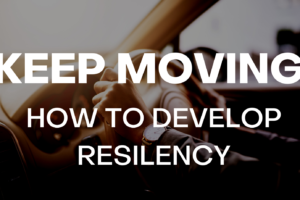The Tower of Siloam – Jesus’s Thoughts on Disasters
Jesus revealed God’s view on the big matters of life, humanity, and eternity. This included His view on disasters – defined as a sudden and major event that negatively impacts human life.
Here are three points to consider from His words:
Point #1: Jesus taught randomness!
This may be a shocking point for some. There are typically two schools of thought for situational outcomes: man’s will and/or God’s. However, the scriptures reveal a third factor – randomness!
Let’s explore this further:
One day a crowd was listening to Jesus speak. Like a balloon rising to a water’s surface, the topic of disasters and humanity suddenly rose from among the crowd.
After discerning their thoughts, He proceeded to teach:
…those eighteen who died when the tower in Siloam fell on them—do you think they were more guilty than all the others living in Jerusalem? “I tell you, no!” – Luke 13:1-5
Siloam was a small neighboring community devastated by the loss of its citizens (and perhaps additional people injured) from the collapse of a large tower.
These lives likely represented the same cross-section of today’s society – mothers, fathers, sisters, brothers, friends, co-workers, & cousins. There were no doubt people in the community who owned businesses, worked on farms, and were living their lives as they normally did when the disaster struck.
Based on Jesus’ words, we see that some in the crowd believed that the disaster was caused by the victim’s own wrongdoings and sinfulness. Maybe having such a belief was an attempt to rationalize the tragedy.
Bad things happen to bad people because they are bad, and good things happen to good people because they are good, right? Not really.
What about COVID-19, our current world disaster? Are people suffering because of their sin? As Jesus put it bluntly:
“I tell you, no!” – Luke 13:3a.
If the tower of Siloam did not fall because of the people, why did it fall? It was likely due to the same reason a dollop of ice cream may fall to the ground – excessive wind loads or degradation of materials.
Jesus seemed to blame its collapse on simple physics (the effects of living in a physical world) – not on man, God, or the devil. It just happened randomly, and tragically resulted in lives lost.
Like the Tower of Siloam, disasters today can also occur because we live on the same earth they did – being ruled by neither complete randomness nor complete divine control.
Like a shooting star bustles through the galaxy, events often happen without human or divine influence.
While without question God is sovereign and preordains some events in our lives and throughout world history, ‘random suddenlies’ could happen to anyone at any time. What then should our response be?
That leads us to point #2.
Point #2: Converting losses into wins is God’s specialty
Our Father gives us a critical role to play in helping shape history with Him. Here are a couple of biblical examples to consider:
• A tempest arose in the sea – random. Disciples sought Jesus, and the storm calmed– changed by divine influence.
• Lazarus dies from a sickness – random. Disciples sought Jesus and he is raised to life – changed by divine influence.
Many disasters, both small (like a deer leaping in front of your car) and large (like COVID-19) begin randomly.
But (a very big ‘but’ might I add), converting losses into wins is your Father’s specialty!
Like a pendulum, such events can swing to the other side and be converted into big wins through God’s creative handiwork when we begin to pray.
His influence and sovereignty are often applied through prayer because He wants us to rely upon Him as our Father. God can convert ALL things, even random tragedies, viruses, and losses, into wins for those that walk according to His Spirit. Let me repeat that: EVERY loss you face can be converted into a win!
It’s also important to realize that ‘all things work together for the good’ does not equal ‘all things are good and work together. So, God’s wins may look different than the wins we have in our minds.
The Church’s proactive role (and its maturity) is critical in shaping the goodness of God in the earth. Through prayer, we have the privilege of influencing random and negative events to be converted into God’s goodness!
Many in the world are suffering in some form or fashion, especially from COVID-19. Through our prayers, God is altering this reality– on a local, national, and global level. His hand can bring supernatural healing, while in parallel work in collaboration with subject experts and those bringing scientific breakthrough and aid to bring about it closure.
#3 – Keep an eternal view
Let’s conclude. After dismissing human and divine causation for the Tower of Siloam disaster, Jesus ended the teaching by emphasizing the need to keep an eternal view:
But unless you repent, you too will all perish. – Luke 13:5b.
Obviously, one cannot bypass death by repenting. The latest stats tell us that 1 out of every 1 person dies. So, what did Jesus really mean by that statement?
Repent – To change our view. Decide to turn from sin and towards Jesus, who is the living and resurrected One.
Perish – To Jesus, ‘perish’ is what happens to those who die without eternal life and faces the final Judgment. Eternal life is graciously given to anyone who repents and believes in Christ personally.
Jesus was talking to those in the crowd that day who had not made personal decisions to follow Him. He used the Tower of Siloam to reemphasize His mission, grace, and love towards them.
When we consider life’s uncertainties, accidents, and random disasters these days, it reveals our time is limited. Therefore, if we have not put our faith in Christ, the time is now to do so. It also teaches us to number our days, enjoy them, and live them to the fullest, so that we may acquire a heart of wisdom.








